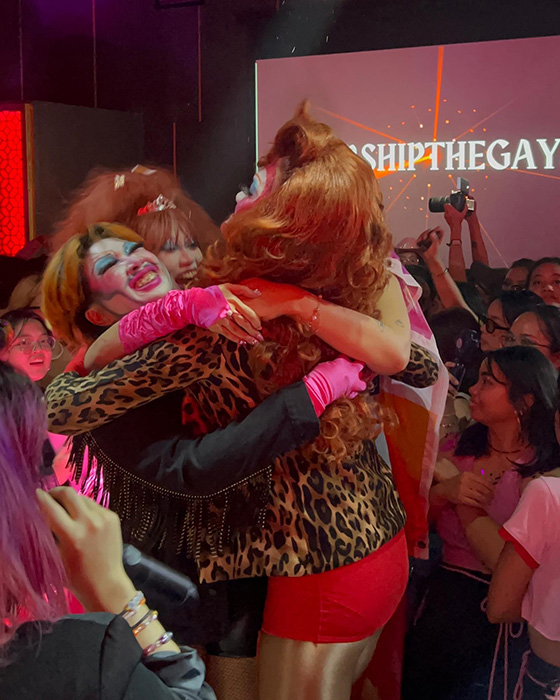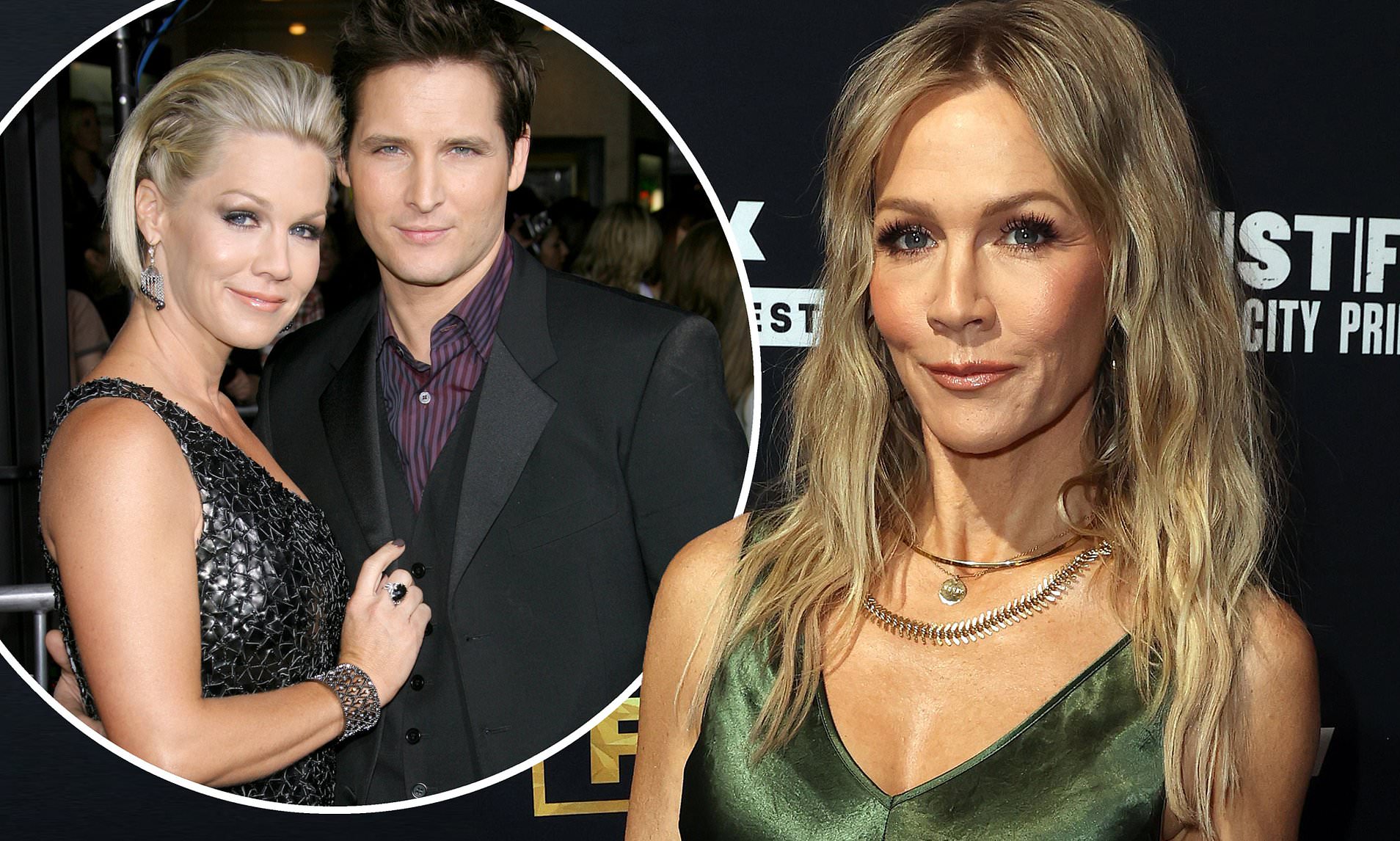
LESBIAN AND QUEER FILIPINAS FIND A HOME (AND A PARTY) IN THE SUNNY SIDE CLUB
Content warning: This article mentions harassment.
Dreamy and explosive, Pink Pony Club isn’t only many people’s gateway song to today’s smash hitmaker Chappell Roan. One night in Sunny Side Club’s world, the song came to life.
“It was when the lesbian flag came out during the last song, where all the drag performers were all on stage together,” Sunny Side Club’s founder Jewel shared her favorite moment from their Pink Pony Club event on June 11, held at Poblacion’s Hoesik.
Also the finance and logistics head, the 24-year-old shares with PhilStar L!fe, “We curated the line-up: A trans woman, hyper queens, and a drag king. We wanted them to be advocates and allies, if not sapphic themselves. The song being about visiting a gay bar for the first time was the cherry on top. I couldn’t see much from where I was for coordination, but I had tears in my eyes after.”
The Tuesday night gathered guests dressed in fuzzy cowgirl hats, glittery tops, and funky accessories, and those who attended couldn’t wait for the next, as seen in Sunny Side Club’s heavy stream of Instagram Stories. But it wasn’t this lively and packed right off the bat for the events platform—usually called Sunny—which was built for lesbian and queer Filipinas.
In fact, it began in every Filipino barkada’s quarantine hangout spot: Discord—except the guests didn’t really know each other.
“People were so, so quiet. I kept talking and talking before and after [watching a] movie, and all of them had their cameras off and were muted,” Jewel recalled the birth of Sunny around September 2023, when the team wanted to watch the coming-of-age film Bottoms with other queer women. “Still, people kept wanting to come in, so I knew the interest wasn’t lost.”
“But it didn’t start there, really,” Cal, co-founder and finance logistics head, told L!fe. “Jewel, my co-founder, had already tried to convince me earlier in 2023 to throw a lesbian get-together at a queer cafe we frequented. I was skeptical because I didn’t think there were enough gay women around us who’d even be interested to do it. Turns out, I was wrong. The Google Forms to watch Bottoms received more than a hundred sign-ups overnight. I genuinely didn’t know a hundred lesbians lived in the Philippines.”
An initial lukewarm atmosphere would leave the neophyte event planner vexed. But the Sunny team, who would later rake in 400 attendees IRL, seemed unfazed by the unpredictable silence during the Bottoms screening—after all, the lack of spaces was a bigger problem to grapple with. Upon reading an article asking where the Philippine lesbian-specific spaces are, Jewel further solidified the plan.
“That requires a stripping of any exclusivity and ‘mystique’ in finding queer women in our communities. It was always hard, it seemed, to find another gay woman growing up and even now as adults,” she added. “That feeling of alienation and loneliness drove us to create this, too: We want a better experience for the next generation, and for the queer women who still don’t know where to find people who have experiences like them.”
Here’s the thing: Although there are queer spaces in the Philippines, it would take a while to think of top-of-mind spots specifically dedicated to sapphics. Cal admitted visiting a queer cafe, plus a couple of queer bars that are still “predominantly male,” was “not exactly always very welcoming to queer women,” and “[not] specifically lesbian.”
The 24-year-old added, “Of course, a queer space will always be leagues better than a random public space. [But sitting] in the queer cafe we frequented, surrounded by paintings of penises from their latest art exhibit, I couldn’t help but feel alienated still.”
A safe space for sapphics
Jewel also confessed to feeling alone in a gay bar upon realizing she wouldn’t chance upon a gay woman during the night.
So of course, Sunny being a “safe space” is the goal. But no matter how frequently this phrase gets thrown around, its definition can be difficult to materialize.
“We want to keep our events as safe as possible, which isn’t simple because Sunny is run by a small core team of students [and] fresh grads,” Cal said. “We aren’t exactly trained to deal with matters of harassment and violence, and we’re looking into anything that could train us with regards to gender sensitivity and what could be used as legal consulting in the future.”
The organizers themselves are not exempt from hostile incidents. “We’ve experienced sexual harassment from men who were regulars at the bars we held events at—threatening to flash us and then outrightly cussing us out and yelling at us. Sadly, we’ve also experienced harassment from people within the community even after we try to explain that we’re a really small team trying to make this happen,” Cal divulged.
Beyond the typical event-planning logistics, finding a place was an obstacle. Which spaces would gladly be an extension of their advocacy, their guests, and who they really are?
“People seem to think it’s a little bit too niche and they want to be ‘all-inclusive,’ which really just means it won’t be a lesbian space anymore. And when they do allow us to have a space just for us, they don’t provide us with security and the organizers have to act as bouncers. [Because] venues assume we don’t need bouncers since all our attendees are women!” Cal explained.
Apart from this, the Sunny team faced financing problems in their early days, prompting them to go the out-of-pocket route. Stepping up and wearing many hats became the default, whether it’s hosting, DJing, or troubleshooting in the midst of program hiccups.
For now, the team underscores what they can to make a safe space out of their brainchild: A genuine sense of belongingness.
“On the most basic level, safety for the queer community is rooted in being welcomed,” Cal said. Jewel added that their house rules involve a “very basic one,” which is to treat each other with respect and compassion.
Despite having a party-dominated roster of events—which is often expected to attract extroverted friend groups—Sunny also ensures that they embrace solo-goers. In fact, according to them, they have a lot. Cal revealed that many friendships and relationships have been weaved through the platform. “Talk to us! There was one person who we met up with because they were 18 and new to partying, so they rode with us to the venue and we made sure that they had a good time,” Jewel says.
From merienda to painting sessions, the team also tries to tap those outside the nightlife scene.
The amount of virtual love letters Sunny receives speaks for itself. Yana, social media and marketing head, told L!fe that she often thinks about that millennial attendee who disclosed about having no spaces like Sunny back in her day.
“She used to wait a whole year for the [Pride] parade just to be with the community. Part of why Sunny does what it does is because of reasons like that; we aim to provide a space for everyone of all ages, giving the chance for older queers to join us and experience events that they might not have gotten to before,” the 22-year-old shared. “It’s amazing to see how we don’t have to wait a whole year now just to be with our community—now it can just be on a random Tuesday.”
When asked about their dream audience, Jewel said they just want to offer a space where they can "all simply be."
“The challenges aren’t exactly in reaching or finding people to attend. Queer women want this.”
What they have, though, is a dream performer: Chappell Roan, of course.
During the Pink Pony Club night, Yana particularly loved the moment drag queen Worshipthegays screamed, “Mabuhay ang mga lesbiyana!”
Then like Jewel, Cal was moved by the gathering of the drag performers onstage. “See, that wasn’t planned at all. It just happened because they all vibed! We are a community. We’re here to be with people, to party with them, to sing with them, to be in community with them,” they say.
Although spontaneous, it wasn’t entirely serendipitous, because the root took a lot of work. “Our name started from trying to find a color that’s gender-neutral [to] avoid alienating anyone within the lesbian/sapphic community,” Cal and Jewel reveal. “‘Sunny Side’ also connotes the idea that this is the sunnier side, the happier side where we can all belong.”
Now, this name means the ongoing exchange of names. From using nicknames and codenames in the Discord server, Sunny attendees are now aware of each other’s government names, and even have sleepovers at each other’s houses. The relentless road to visibility is ongoing, but seeing each other brightly can be a major step.
This article Lesbian and queer Filipinas find a home (and a party) in the Sunny Side Club was originally published in PhilSTAR L!fe
2024-06-30T06:59:20Z dg43tfdfdgfd
